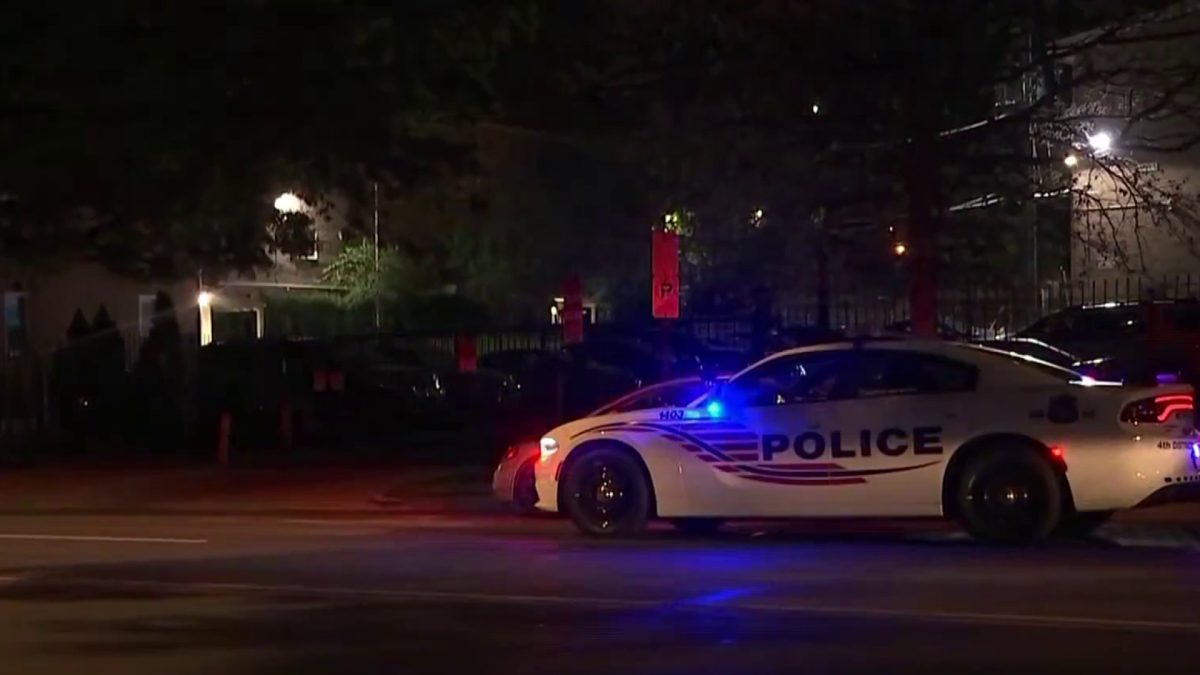What did President-elect Barack Obama focus on the most during his speech Thursday at George Mason University?
The economy, of course.
Check out this tag cloud to see which words came up most often. Then read the entire speech below.
act america americans begin billions borrow buildings business care change competitive confidence course create creation credit crisis economy energy fact future generation government growth happen health history invest jobs leads long-term lost medical million moment nation necessary past plan productive provide reduce save short technology trust washington work world years
created at TagCrowd.com
Local
Washington, D.C., Maryland and Virginia local news, events and information
President-Elect Barack Obama's Economic Speech:
Throughout America's history, there have been some years that simply rolled into the next without much notice or fanfare. And then there are the years that come along once in a generation, the kind that mark a clean break from a troubled past and set a new course for our nation. This is one of those years.
We start 2009 in the midst of a crisis unlike any we have seen in our lifetime, a crisis that has only deepened over the last few weeks.
Nearly 2 million jobs have been now lost. And on Friday, we're likely to learn that we lost more jobs last year than at any time since World War II. Just in the past year, another 2.8 million Americans who want and need full-time work have had to settle for part-time jobs.
Manufacturing has hit a 28-year low. Many businesses cannot borrow or make payroll. Many families cannot pay their bills or their mortgage. Many workers are watching their life savings disappear. And many, many Americans are both anxious and uncertain of what the future will hold.
Now, I don't believe it's too late to change course, but it will be if we don't take dramatic action as soon as possible. If nothing is done, this recession could linger for years.
The unemployment rate could reach double digits. Our economy could fall $1 trillion short of its full capacity, which translates into more than $12,000 in lost income for a family of four.
We could lose a generation of potential and promise as more young Americans are forced to forego dreams of college or the chance to train for the jobs of the future. And our nation could lose the competitive edge that has served as a foundation for our strength and our standing in the world.
In short, a bad situation could become dramatically worse.
This crisis did not happen solely by some accident of history or normal turn of the business cycle. And we won't get out of it by simply waiting for a better day to come or relying on the worn-out dogmas of the past.
We arrived at this point due to an era of profound irresponsibility that stretched from corporate board rooms to the halls of power in Washington, D.C.
For years, too many Wall Street executives made imprudent and dangerous decisions, seeking profits with too little regard for risk, too little regulatory scrutiny, and too little accountability. Banks made loans without concern for whether borrowers could repay them, and some borrowers took advantage of cheap credit to take on debt they couldn't afford.
Politicians spent taxpayer money without wisdom or discipline and too often focused on scoring political points instead of problems they were sent here to solve.
The result has been a devastating loss of trust and confidence in our economy, our financial markets and our government.
Now, the very fact that this crisis is largely of our own making means that it's not beyond our ability to solve. Our problems are rooted in past mistakes, not our capacity for future greatness.
It will take time — perhaps many years — but we can rebuild that lost trust and confidence. We can restore opportunity and prosperity.
We should never forget that our workers are still more productive than any on Earth. Our universities are still the envy of the world. We are still home to the most brilliant minds, the most creative entrepreneurs, and the most advanced technology and innovation that history has ever known. And we are still the nation that has overcome great fears and improbable odds.
If we act with the urgency and seriousness that this moment requires, I know that we can do it again.
That is why I have moved quickly to work with my economic team and leaders of both parties on an American Recovery and Reinvestment Plan that will immediately jump-start job creation and long-term growth. It's a plan that represents not just new policy, but a whole new approach to meeting our most urgent challenges.
For if we hope to end this crisis, we must end the culture of anything goes that helped create it, and this change must begin in Washington.
It's time to trade old habits for a new spirit of responsibility. It's time to finally change the ways of Washington so that we can set a new and better course for America.
There is no doubt that the cost of this plan will be considerable. It will certainly add to the budget deficit in the short term.
But equally certain are the consequences of doing too little or nothing at all, for that will lead to an even greater deficit of jobs, incomes, and confidence in our economy.
It is true that we cannot depend on government alone to create jobs or long-term growth. But at this particular moment, only government can provide the short-term boost necessary to lift us from a recession this deep and severe. Only government can break the cycle that is crippling our economy, where a lack of spending leads to lost jobs, which leads to even less spending, where an inability to lend and borrow stops growth and leads to even less credit.
That's why we need to act boldly and act now to reverse these cycles. That's why we need to put money in the pockets of the American people, create new jobs, and invest in our future. That's why we need to restart the flow of credit and restore the rules of the road that will ensure a crisis like this never happens again.
This plan begins with — this plan must begin today, a plan I'm confident will save or create at least 3 million jobs over the next few years.
It's not just another public works program. It's a plan that recognizes both the paradox and promise of this moment: the fact that there are millions of Americans trying to find work, even as all around the country there's so much work to be done.
And that's why we'll invest in priorities like energy and education, health care and a new infrastructure that are necessary to keep us strong and competitive in the 21st century.
That's why the overwhelming majority of the jobs created will be in the private sector, while our plan will save the public sector jobs of teachers, police officers, firefighters, and others who provide vital services.
To finally spark the creation of a clean energy economy, we will double the production of alternative energy in the next three years. We will modernize more than 75 percent of federal buildings and improve the energy efficiency of 2 million American homes, saving consumers and taxpayers billions on our energy bills.
In the process, we will put Americans to work in new jobs that pay well and can't be outsourced, jobs building solar panels and wind turbines, constructing fuel-efficient cars and buildings, and developing the new energy technologies that will lead to even more jobs, more savings, and a cleaner, safer planet in the bargain.
To improve the quality of our health care while lowering its cost, we will make the immediate investments necessary to ensure that, within five years, all of America's medical records are computerized. This will cut waste, eliminate red tape and reduce the need to repeat expensive medical tests.
But it just won't save billions of dollars and thousands of jobs; it will save lives by reducing the deadly but preventable medical errors that pervade our health care system.



